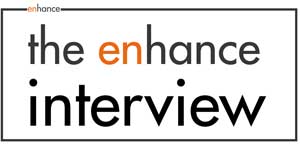Jonathan Simpson Tarling joined Bank Automation in February 2018, coming in to lead the business as MD. Prior to this, Jonathan was on the leadership team of The Keyholding Company as Chief Commercial Officer.
Banking Automation designs and builds self-service deposit and change machines for the commercial customers of banks, serving customers around the globe and was acquired in December 2017 by the Australian cash specialists, Sprintquip.
You started your first Managing Director role this year – congratulations!
What would you say has been the most noticeable change you have experienced in your MD role compared to previous roles, and why?
The most noticeable change is that however much of a team player you are, it’s a position where you don’t have a set of peers. Rather, you have direct reports to manage downwards and those you manage upwards.
This has led to moments where I have felt relatively isolated compared with previous roles. It’s not necessarily a negative thing – I actually enjoy the occasional feeling of isolation and that ‘the buck stops here’ – but it is a change compared with previous roles.
What do you see as the key responsibilities of the Managing Director role and how does this differ from the other director roles?
I see the key responsibilities of the MD are:
– Being the point-person for the Board if they have any concerns, questions or input regarding how the business is faring or being run
– Making sure the department heads/managers are aligned with the company vision and supporting them with their team management
In terms of how it differs from other director roles:
– It’s the element of having to dip in and out of all parts of the business, from Finance one moment through to Sales and Technical issues.
I suppose a Non-Exec Director also has this aspect to their work, but not on a constant basis.
Banking Automation was acquired just before you joined. Do you feel your role has been shaped by this event to an extent?
Massively. The brief was always going to be shaped by the context of the acquisition, given the risks any acquisition has on a business in the first couple of years. Specifically, it’s been shaped:
– by People dynamics – changes in ownership bring new players who usually sit alongside existing players. With that comes a whole host of challenges in terms of building trust between the ‘old’ and ‘new’ people and getting them to work well as a team.
– by Financial drivers – the new owners will tend to have different objectives to those the business has had historically. It’s important for a new MD in this situation to get the balance between demonstrating proof points that the acquisition will be a success, as well as communicating any bad news/concerns quickly!
What piece of advice would you wish you’d been given as a new MD?
Probably too early to say. Some really good advice I got was to take my time to get to know the business. Easier said than done, given the immediate demands you get put under as an MD, but it was good to hear nonetheless.
You clearly enjoy leading people. What gives you the most satisfaction from leading your team?
Seeing them grow into their respective roles and taking on more responsibility. Achieving and surpassing their goals. If they do well, I do well.
What has been the most exciting thing you have worked on in your career and why?
For pure excitement: being asked to go to Cape Town at the age of 26 to start up a 24/7 operations from scratch – all on a very small budget. An amazing opportunity to experience a new culture, lead and make mistakes (and hopefully learn from them).
What is your favourite bit of the work day / week and why?
Friday afternoon – when the office is quiet; I get time to do any ‘important but not urgent’ things I hadn’t yet managed to get around to in the week.
No meetings, no interruptions, and my bosses in Australia have gone on their weekend!
How important to you is professional development? What options would you recommend to other MDs or aspiring MDs to continue their professional development and why?
Really important:- especially as a new MD, there is still so much to learn.
In terms of recommendations, doing an MBA was a great experience for me, although I’m not sure I would have time for it as an MD.
Business schools run a good range of shorter courses which are great for networking as well as building skills and understanding in important areas.
I also recommend getting a mentor – especially if your boss is in another country – they can be great as an impartial sounding board.
All that said, I do think there’s no substitute to the learning you get on the job and it’s important to be conscious of those learning opportunities (and document them!).
My biggest learning points in my career have definitely been when poor strategic calls or cock-ups have been made – by me or those around me.
Your career has taken you around the globe. What advice would you give to others to help them adapt to different countries’ business cultures?
Don’t rush to make judgements on the way other cultures do stuff.
Show an interest and ask questions if you see something being done differently to the way you’d expect. And the occasional smile and laugh goes a long way, whatever your language skills.
What makes you most excited about Banking Automation’s future prospects?
The fact that we have a number of unexploited core competencies and the size of the available market – in short, the potential.

Enhance provides coaching and mentoring for Ambitious Directors, by Directors.
If you would like dedicated support from a coach who understands the demands of Board level positions, call us on 0203 500 6300 or contact us here to find out how we can help you.

